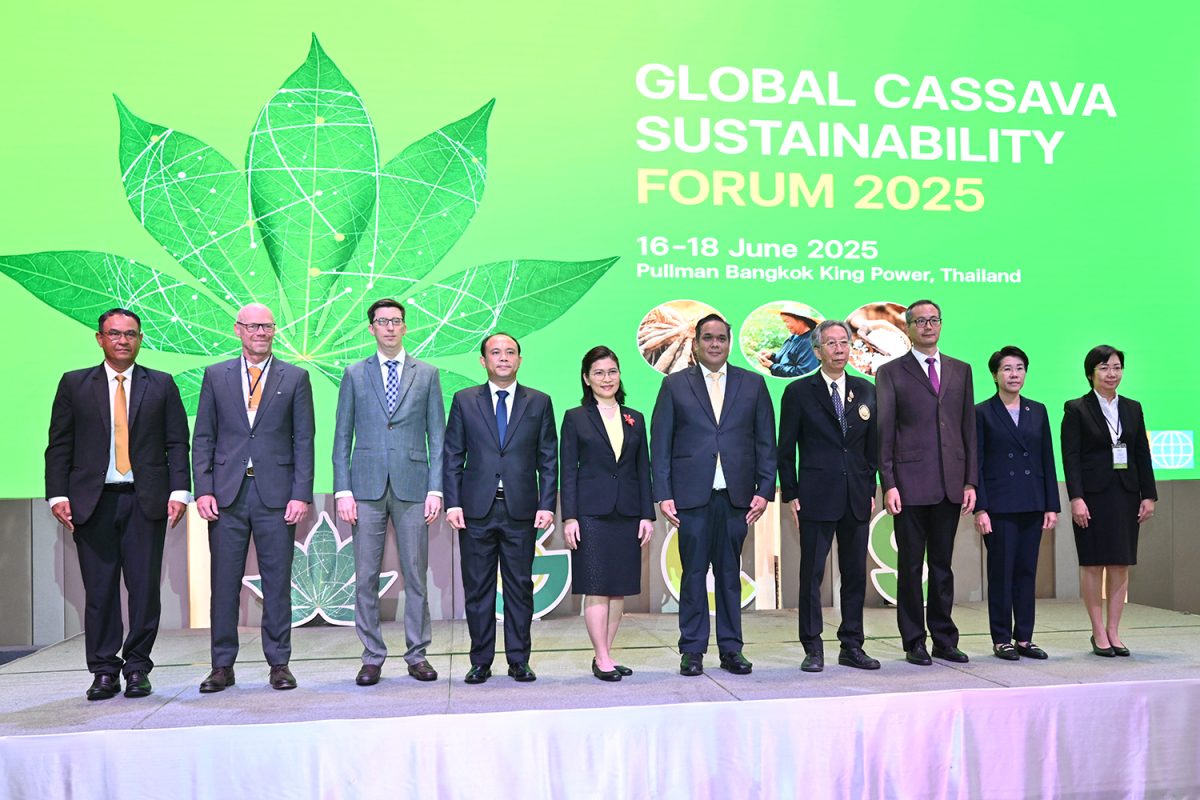
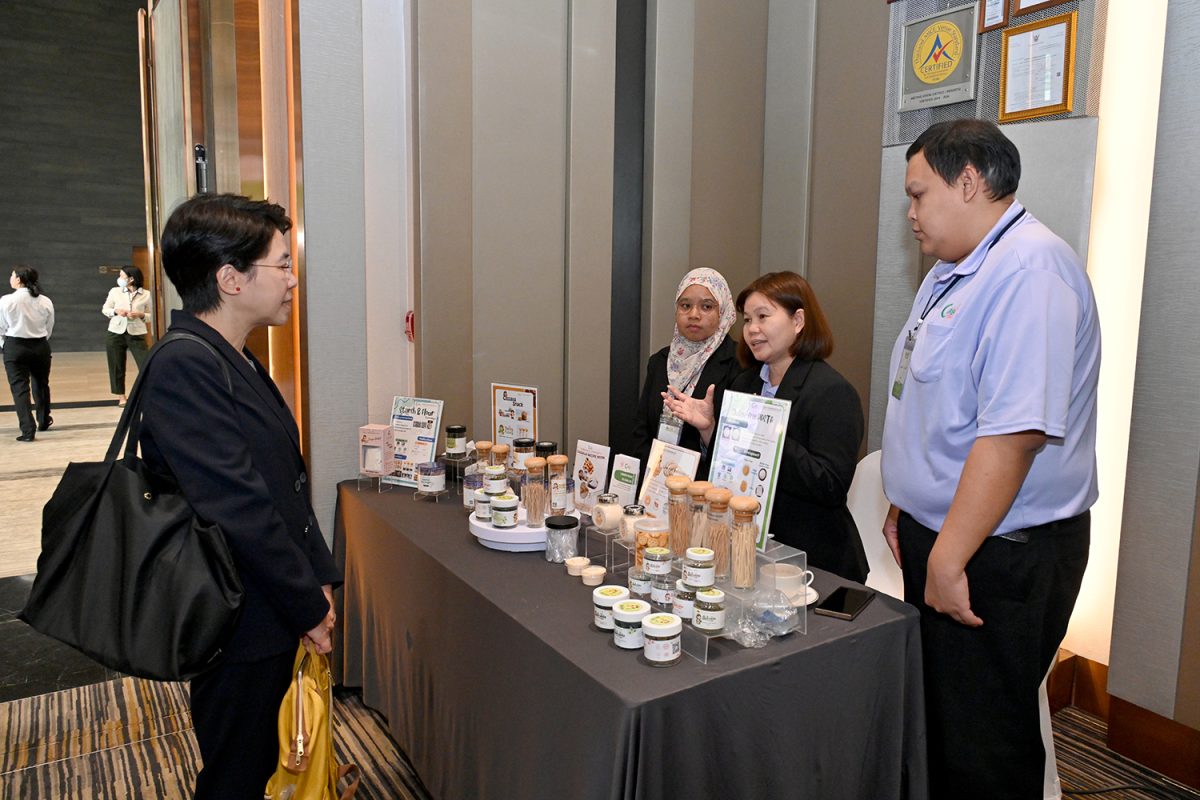
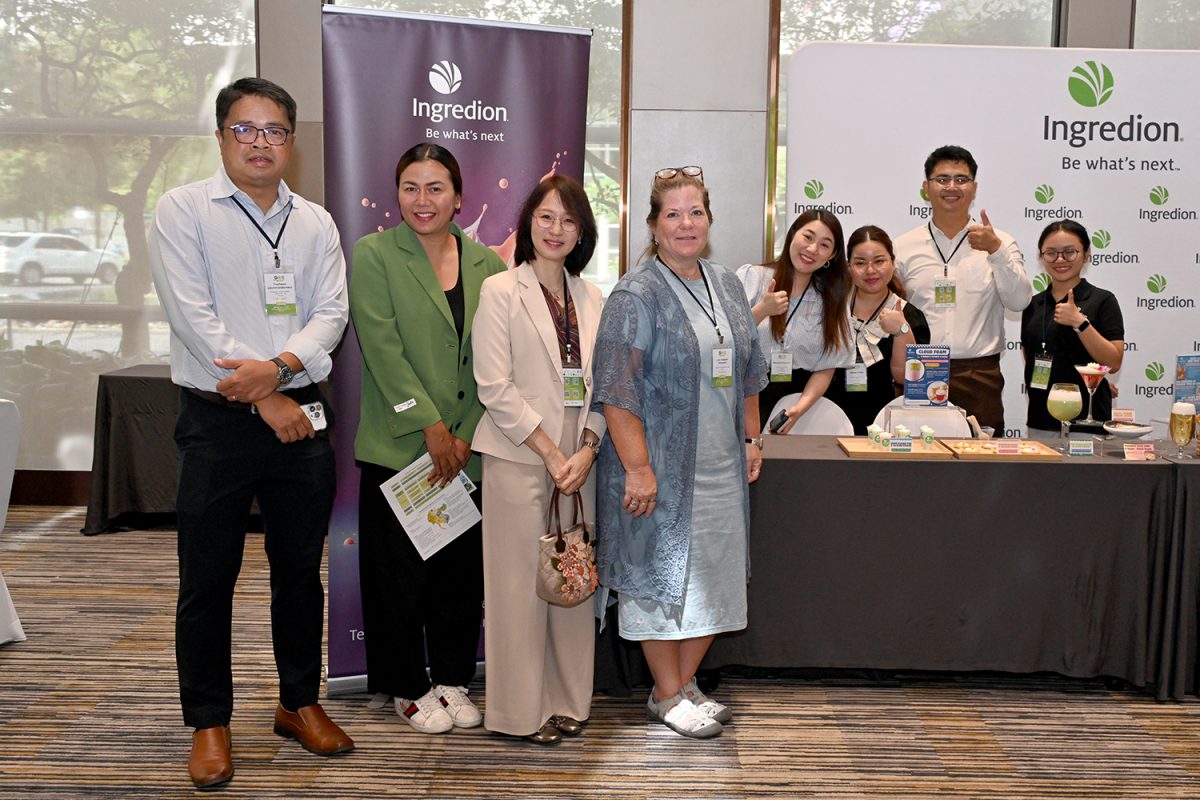
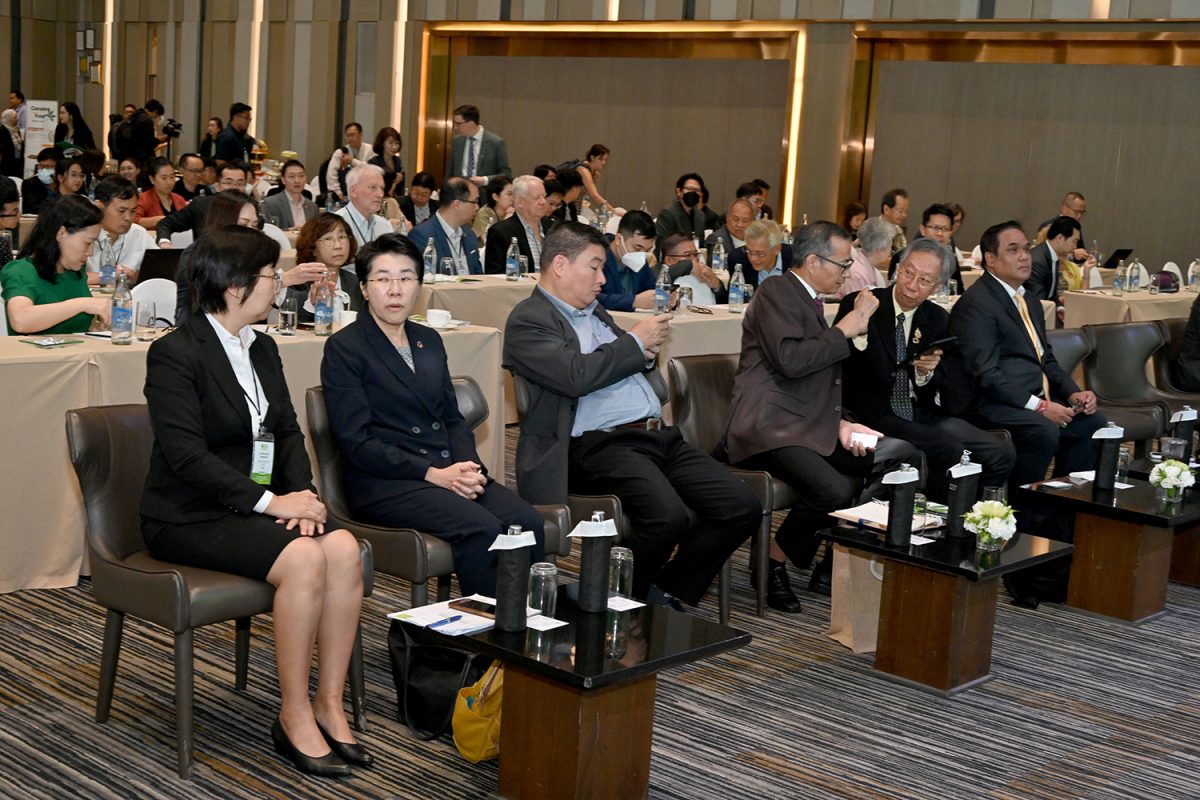
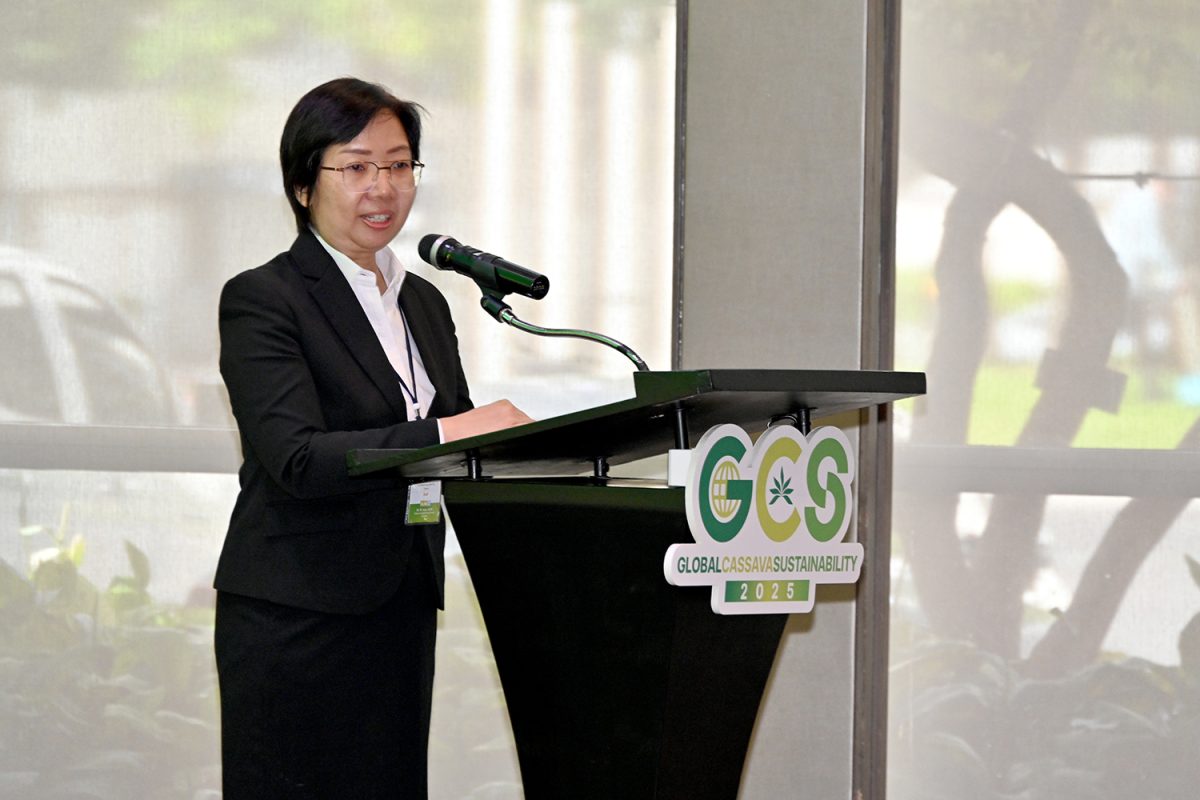
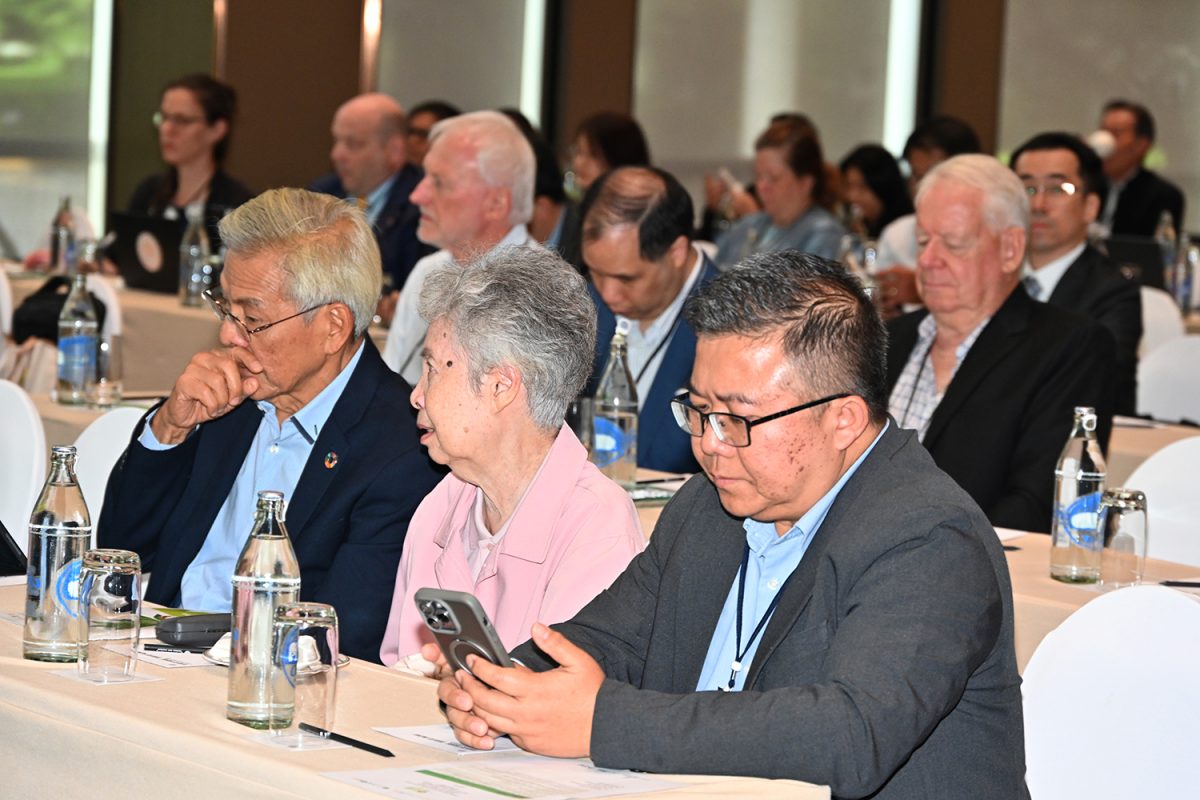
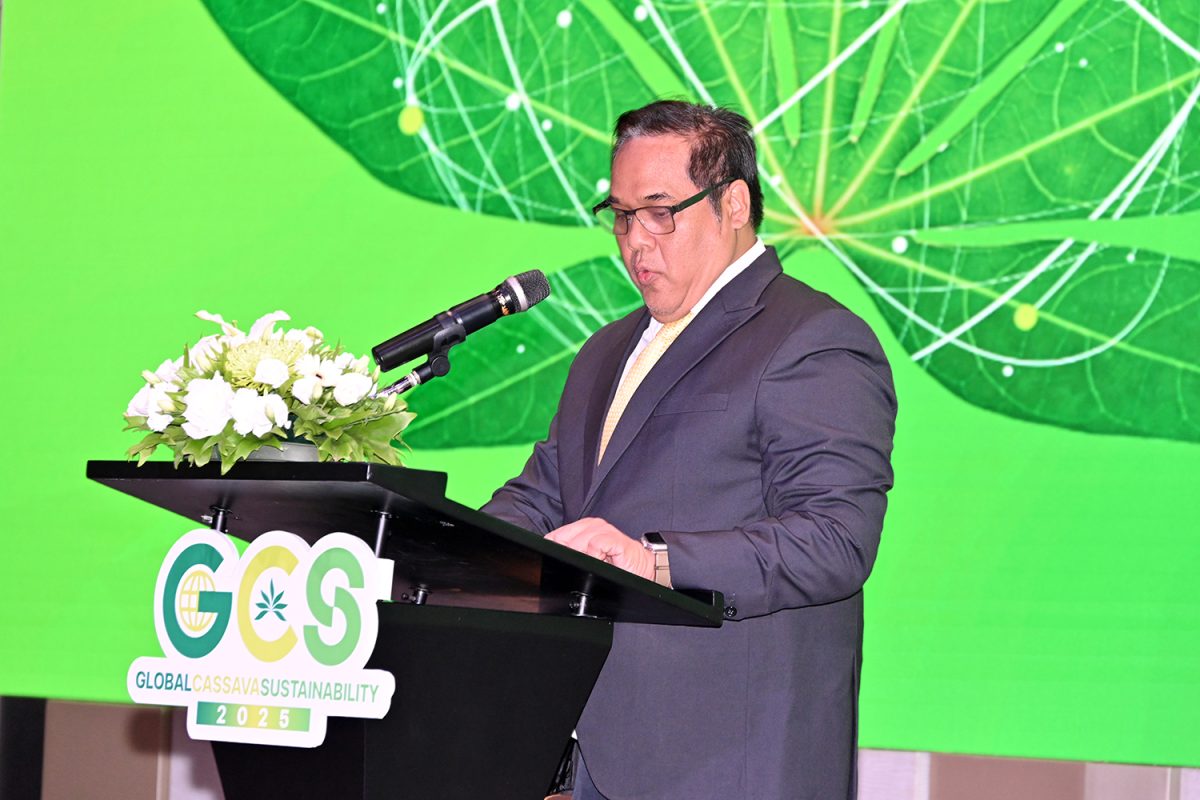
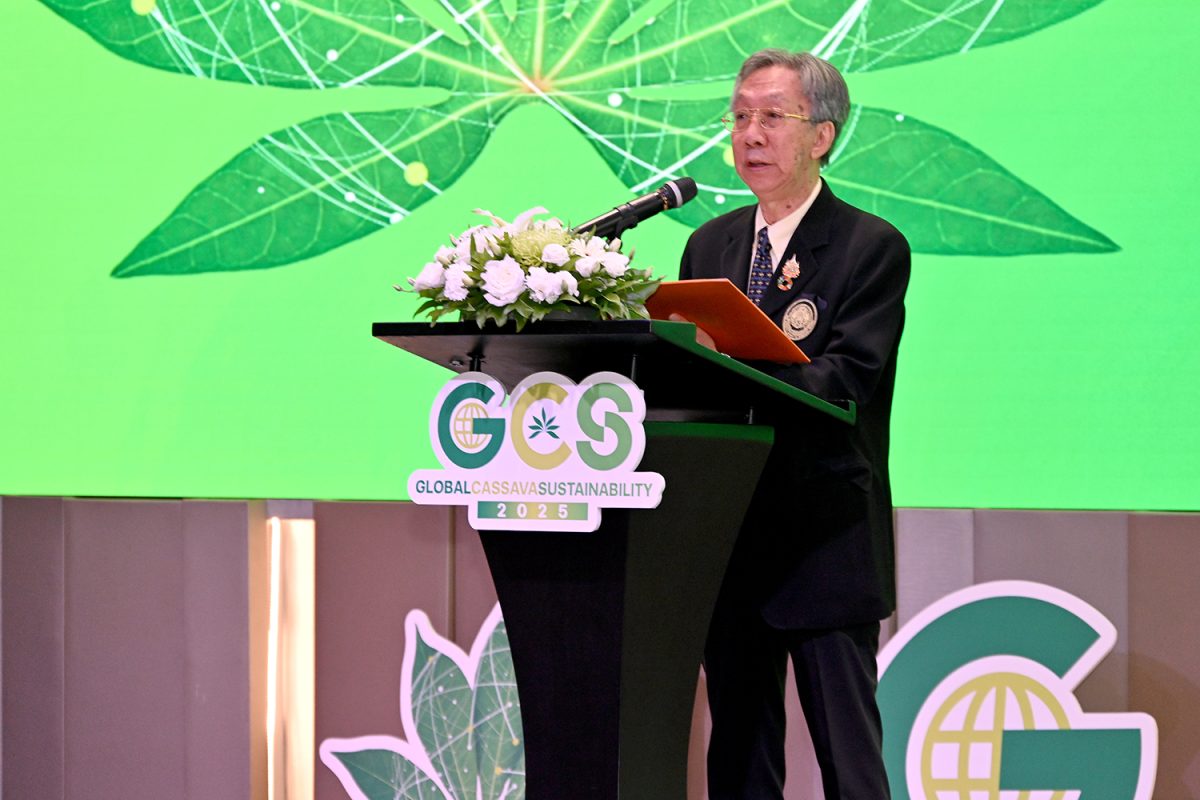
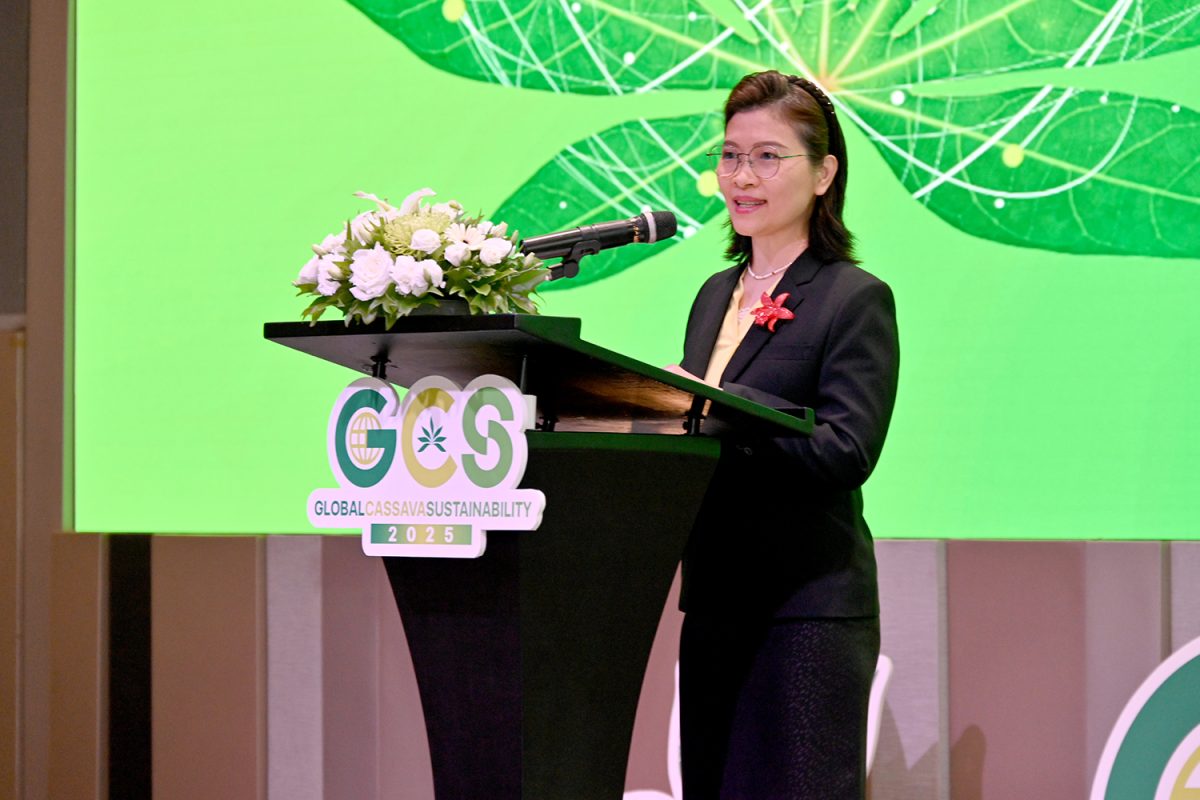
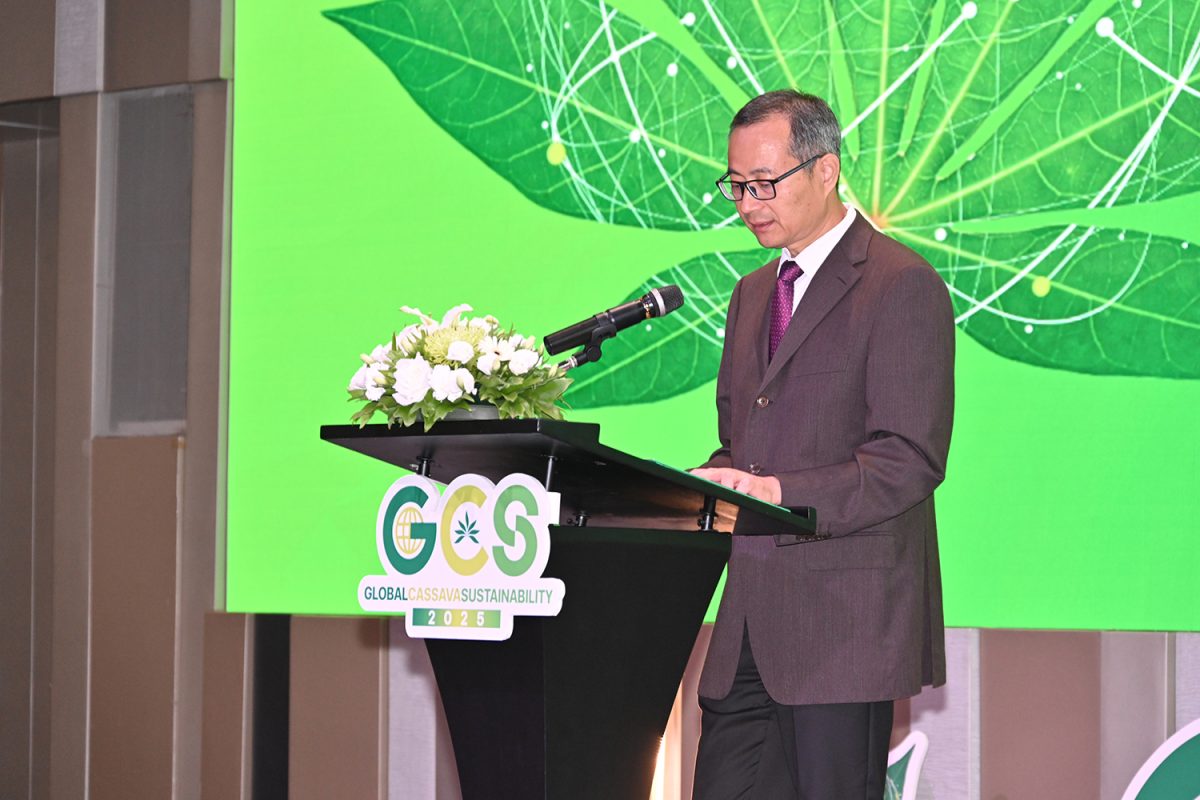
Bangkok, June 16, 2025 – Thailand’s leadership in the global cassava industry took center stage at the Global Cassava Sustainability Forum 2025, held today at Pullman Bangkok King Power. Co-hosted by King Mongkut’s University of Technology Thonburi (KMUTT) and the National Center for Genetic Engineering and Biotechnology (BIOTEC) under the National Science and Technology Development Agency (NSTDA), the event gathered international experts, industry leaders, and policymakers to strengthen global networks in sustainable agri-business, using cassava as a model value chain.
The forum is part of Thailand’s Reinventing University Initiative, supported by the Ministry of Higher Education, Science, Research and Innovation (MHESI), which aims to enhance Thai universities’ global competitiveness and strengthen their role in national development.
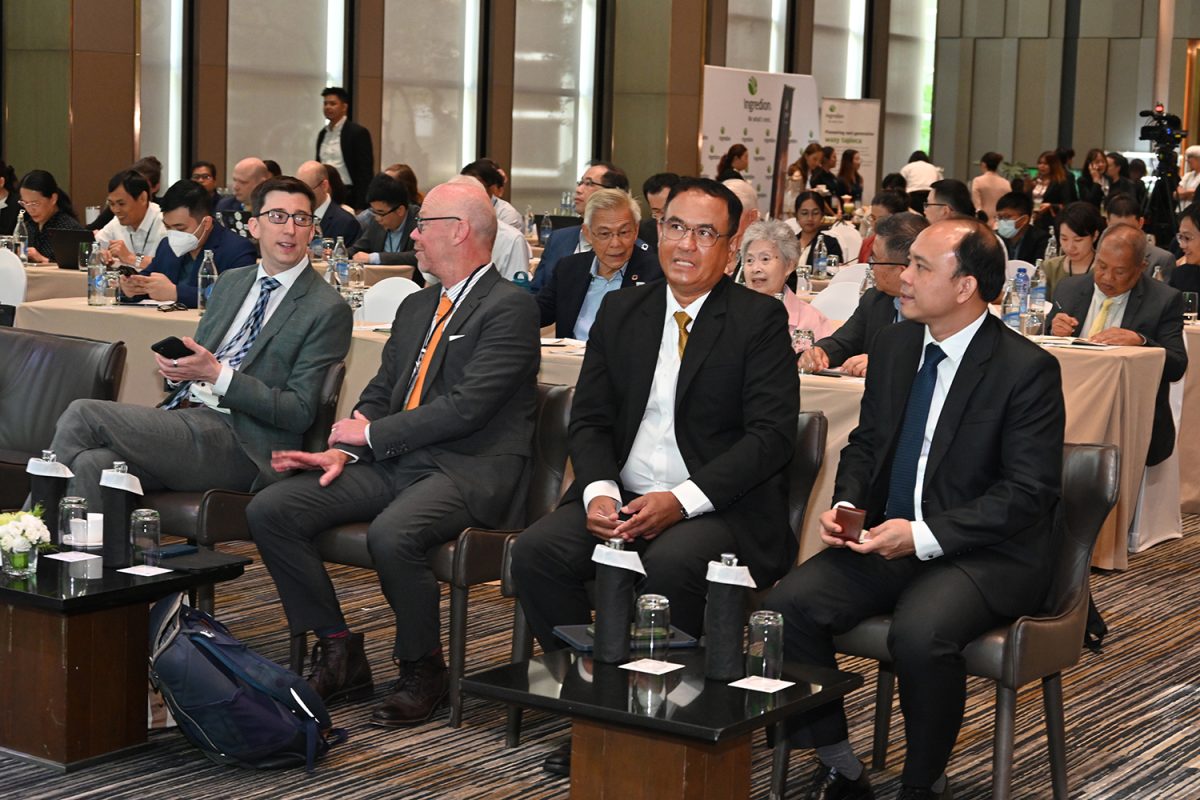
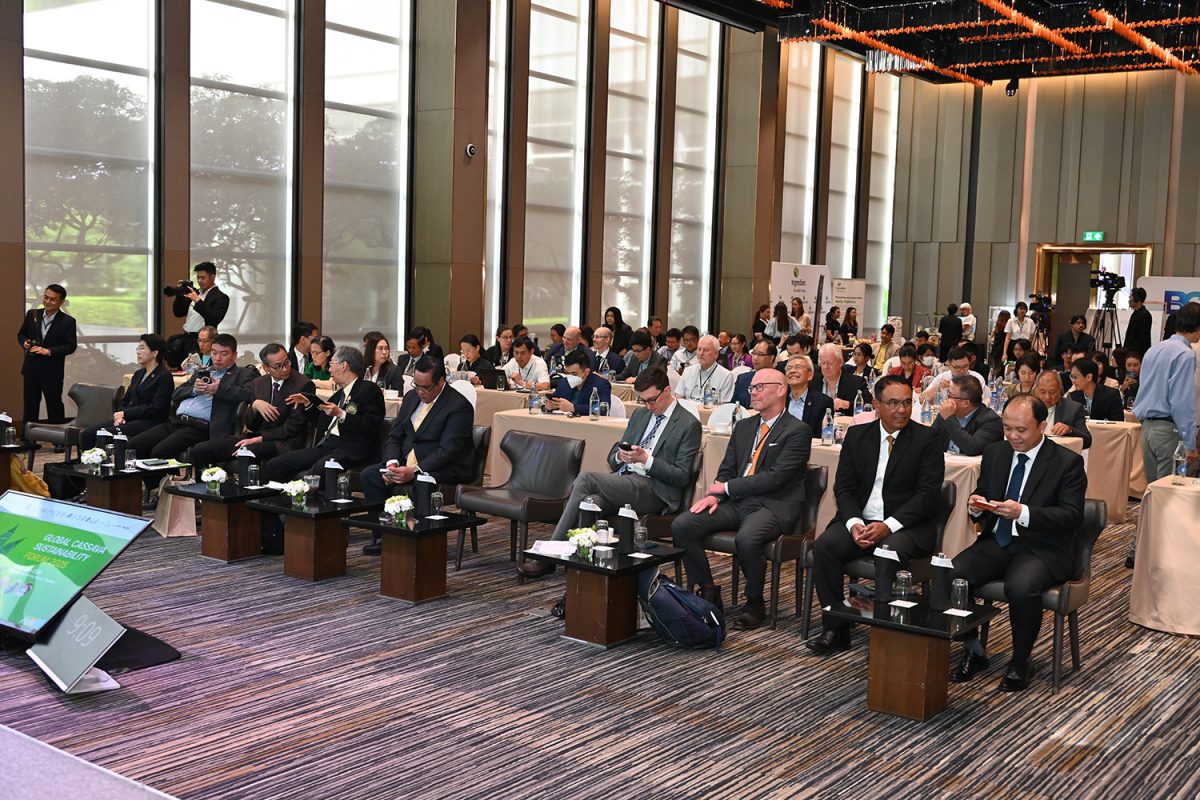
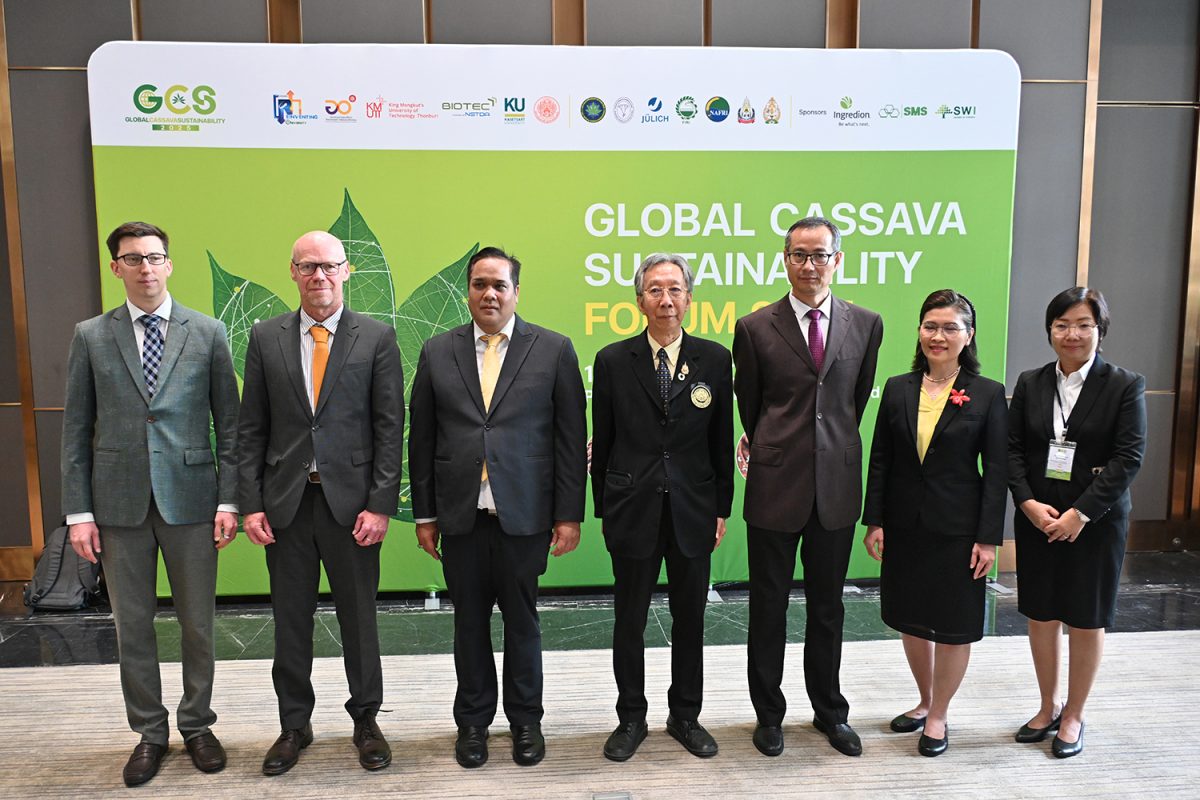
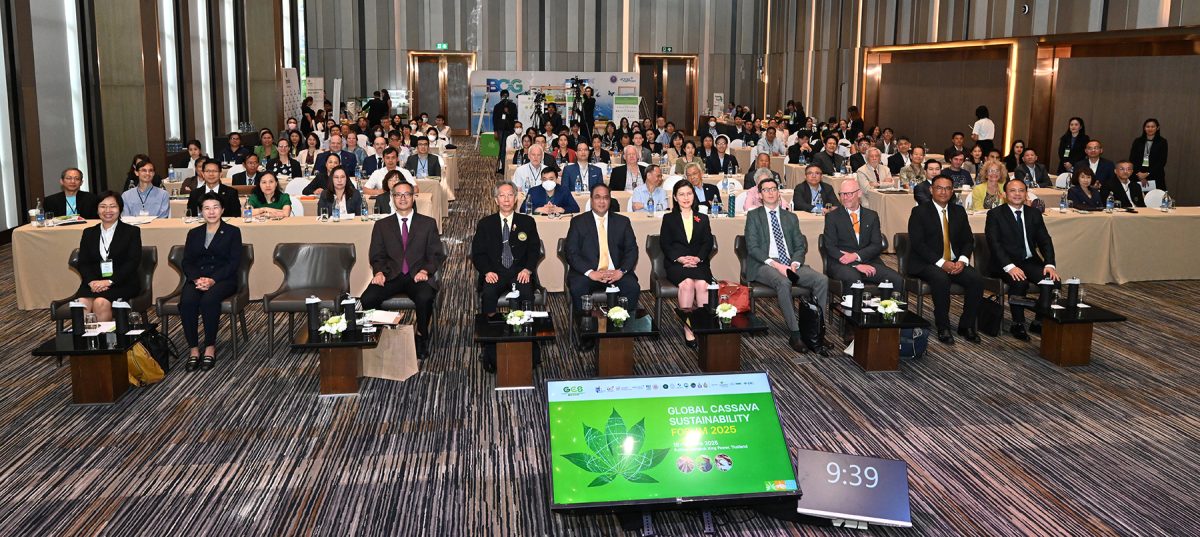
Dr. Punpermsak Aruni, Assistant Permanent Secretary, Ministry of Higher Education, Science, Research and Innovation stated that cassava exemplifies Thailand’s agricultural strengths and its potential to lead sustainable development under the Bio-Circular-Green (BCG) Economy model. “Thailand is the world’s largest exporter of cassava products, with exports valued at 3.3 billion USD in 2024. Together with Cambodia and Vietnam, we hold 90% of the global market share,” he said. He added that cassava is a key driver of Thailand’s BCG strategy, contributing to sectors such as bioenergy, biochemicals, food, and pharmaceuticals.
He also emphasized Thailand’s commitment to climate action, noting that in 2023, BIOTEC, KMUTT, and key industry partners pledged to reduce greenhouse gas emissions from the cassava starch sector by 30% by 2030, with a target of net zero emissions by 2050. “This is a clear example of how public-private collaboration can drive environmental responsibility while maintaining industry competitiveness,” he noted.
Assoc. Prof. Dr. Suvit Saetia, President of KMUTT said the university plays a key role in driving research that can be applied in real-world settings through the Reinventing University Initiative. “Cassava offers a powerful entry point for advancing the bioeconomy. It is not only a versatile crop but also a foundation for innovations in biotechnology, energy, and waste management,” he said.
He highlighted KMUTT’s long-term partnership with BIOTEC in research and pilot initiatives, including a joint bioethanol production plant, starch engineering technologies, and circular economy solutions. “This forum reflects our commitment to international collaboration and knowledge-sharing. It’s about building a global network to co-develop sustainable solutions and strengthen capacity across the cassava value chain,” he added. He also stated, “The Global Cassava Sustainability Forum 2025 serves as a key platform for building strategic collaboration through the ASEAN Cassava Centre, which plays a central role in connecting stakeholders across the entire cassava value chain—from upstream to downstream. The focus is on enhancing international competitiveness and laying a concrete foundation for a truly sustainable industry. This forum also reflects KMUTT’s commitment to expanding international collaboration and jointly developing knowledge to upgrade the cassava value chain in a sustainable way. We are joined by strong partners from across the globe, as well as organizations and associations involved in the cassava industry throughout the value chain. The event is also supported by private sector partners including Ingredion Thailand, Poon Phol Company Limited, and Sanguan Wong Industry Co., Ltd.”
Assistant Professor Dr. Chaowaree Adthalungrong, Executive Director of BIOTEC mentioned that long-standing cooperation between NSTDA, BIOTEC, and KMUTT has produced significant advances in cassava R&D. “From high-yield, low-cyanide cassava varieties like Pirun 1, 2, and 4 to rapid diagnostic tools and starch processing innovations, our work is delivering practical solutions that benefit farmers, processors, and consumers,” she said.
She also cited achievements in wastewater treatment and biogas production, aligning with Thailand’s BCG goals. “Through regional capacity-building initiatives, we’ve shared Thai innovations with countries across the Mekong region, helping to raise production standards and environmental performance throughout Asia,” Asst. Prof. Dr. Adthalungrong added.
Dr. Warintorn Songkasiri, Acting Deputy Executive Director of BIOTEC, concluded that the Global Cassava Sustainability Forum 2025 aims to establish a Global Network on Sustainable Bioeconomy in Agri-Business, using cassava as a model crop for sustainable development across the entire value chain. The goal is to achieve net-zero greenhouse gas emissions, with the potential to expand to other agricultural products. This initiative highlights Thailand’s role as a global leader in sustainable agriculture and as a driver of food, economic, and environmental security in Asia and beyond.
Throughout the three-day forum, participants will explore strategies to strengthen and sustain the global cassava value chain. Topics include modern cultivation technologies, plant disease management, eco-friendly starch production, waste management, and high-value product development. The event also features exhibition of cassava starch applications in food innovation, showcases of the latest products from leading companies in the industry, and site visits to an MSG manufacturing plant, a cassava starch factory, and BIOTEC.
The forum brings together more than 40 distinguished speakers from around the world, including:
- Prof. Dr. Lene Lange, an international bioeconomy expert from Denmark
- Prof. em. Dr. Wilhelm Gruissem, a key figure in cassava genetic improvement
- Prof. Dr. Ulrich Schurr, Director of Institute of Plant Sciences at Forschungszentrum Jülich
- Prof. Dr. Hidenari Yasui, an expert in wastewater management in agri-industries